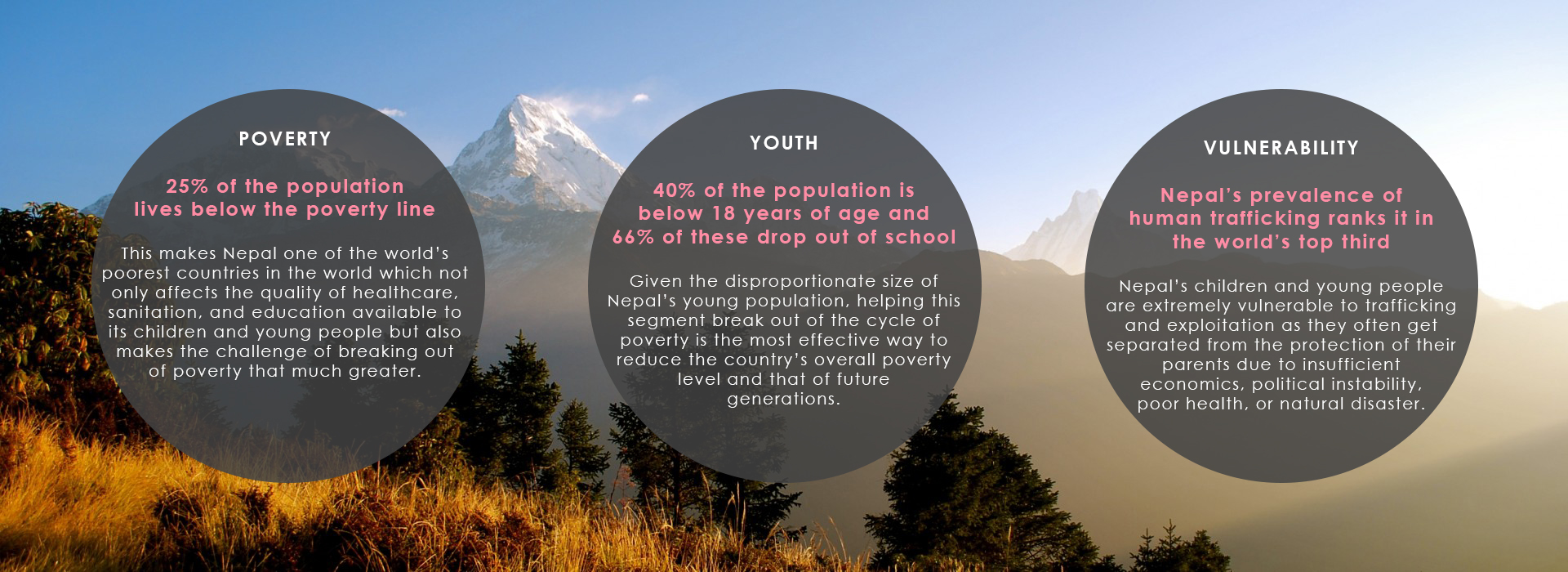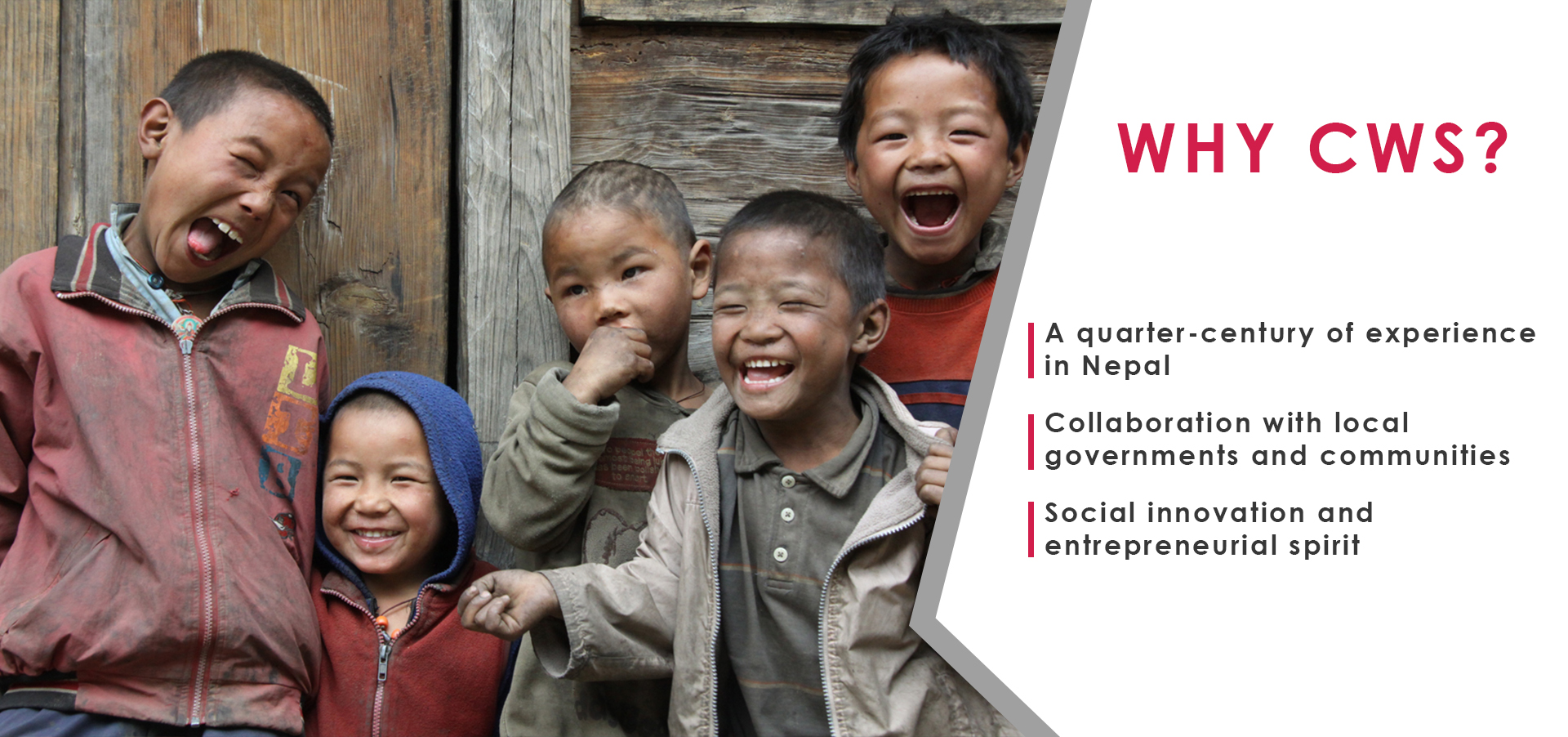
EXPERIENCE
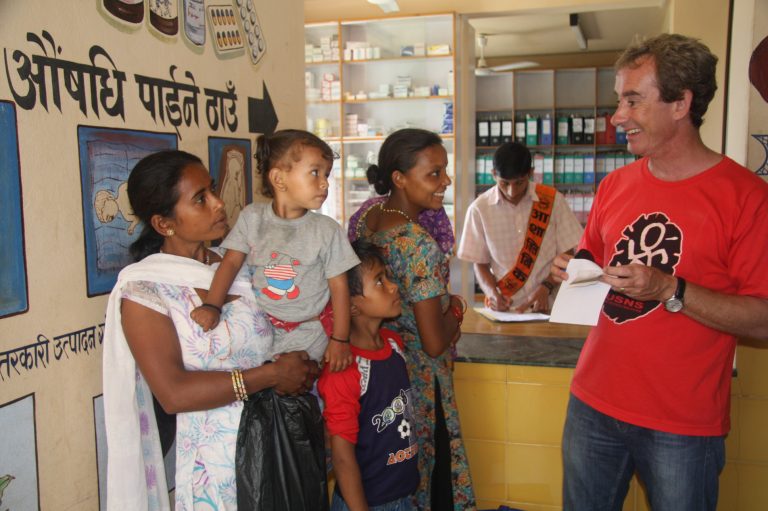
CWS’s founder Douglas Maclagan has spent the last 25 years working in Nepal to support the country’s most vulnerable children and young people. Not only has this allowed Douglas to understand at the deepest level the humanitarian problems and challenges facing Nepal’s young population, but also to learn from first-hand experience the most effective ways to address these social challenges. This has allowed CWS to grow organically over the years and to respond quickly to new challenges created by political and economic shifts in Nepal’s environment.
COLLABORATION
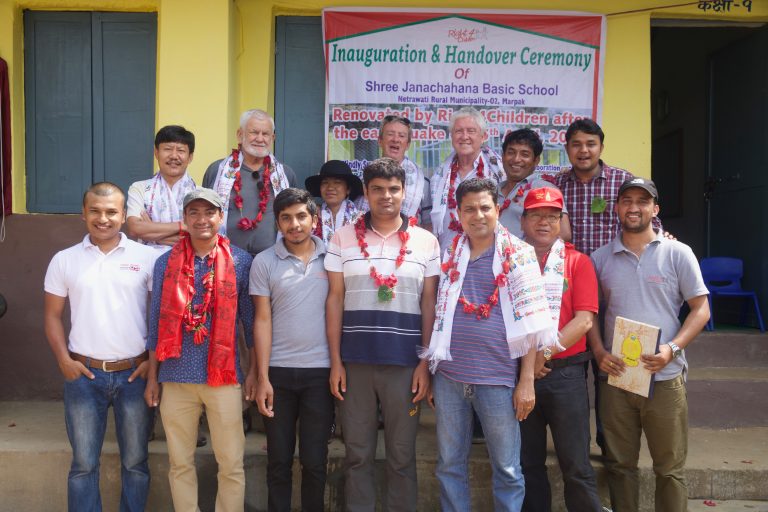
CWS has earned the respect of the local governments and communities who collaborate with CWS on many of its projects and often replicate them due to their success. All of CWS projects are designed to be models of high quality social services that can be replicated by the government and supported by the communities that they serve. This approach has led to great success as the Nepalese government has now taken over and is replicating two of CWS’s original projects: day care health centres serving young children in remote villages and primary care health clinics serving impoverished mothers and children living in urban areas. Today, the government operates 14 day care health centres and 13 health clinics based on CWS’s original model.
INNOVATION AND ENTREPRENEURIAL SPIRIT
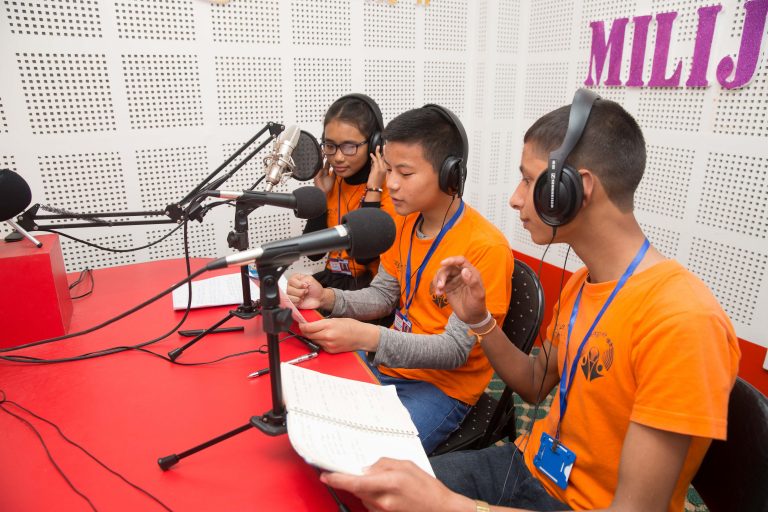
CWS projects rely upon social innovation and an entrepreneurial spirit for their success. From its original project of one small community-built building designed to solve three critical problems afflicting village children - safety while parents were away at work, pre-school education to assure readiness for formal school, and primary healthcare to prevent simple health issues from becoming life-threatening - CWS has relied on an innovative mindset to solve the social problems that it aims to address. Today, CWS’s vocational school for young people from dire circumstances operates with the support of for-profit businesses that also provide entry level jobs for the school’s graduates.
WHY NEPAL?
Despite its natural beauty, Nepal’s environment is one of the world’s most difficult to survive in as a healthy child. Civil wars, natural disasters, and a landlocked economy all contribute to Nepal’s ranking as one of the world’s most fragile states.
CWS focuses its work in Nepal because of the humanitarian challenges created by the combination of poverty, youth, and vulnerability.
